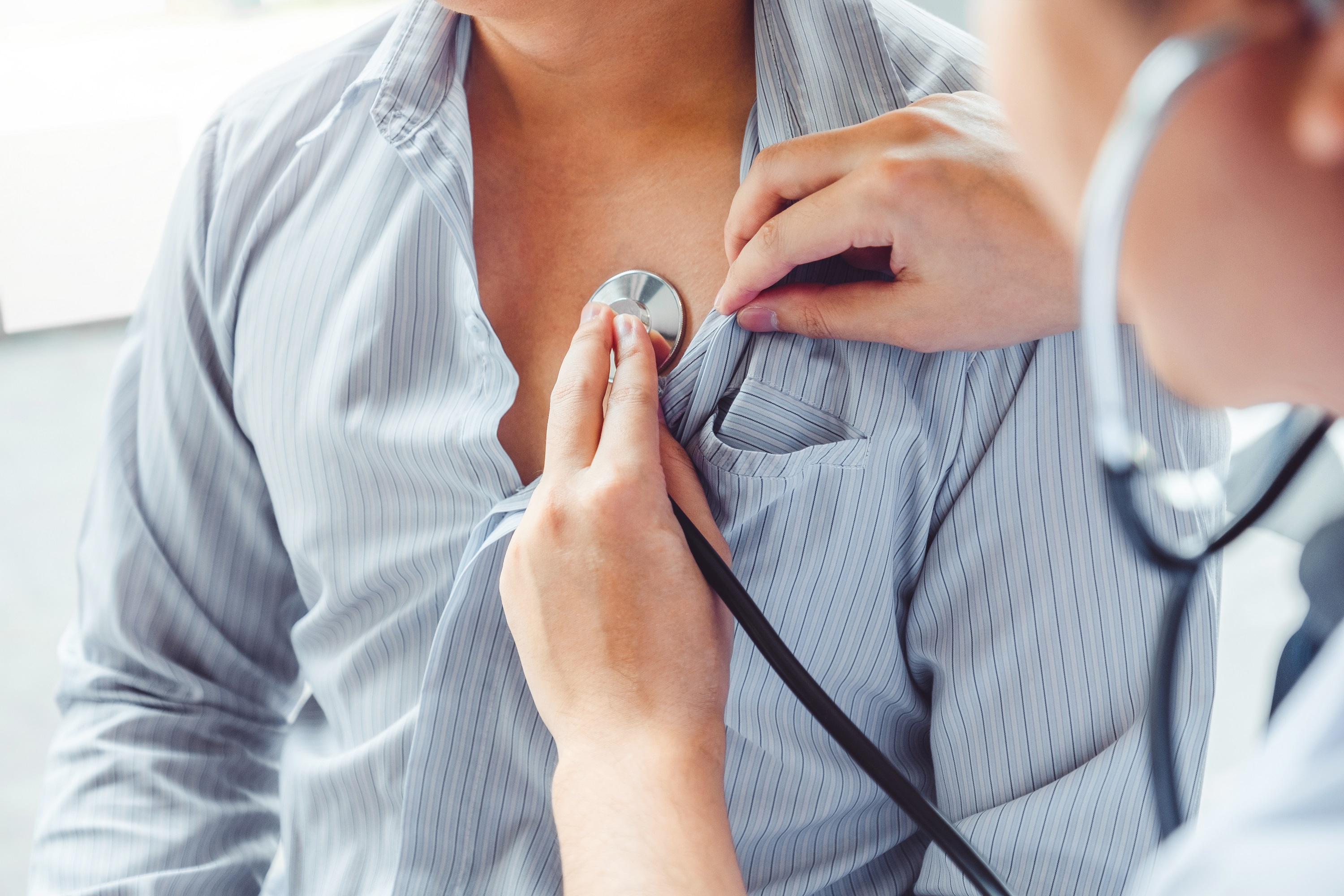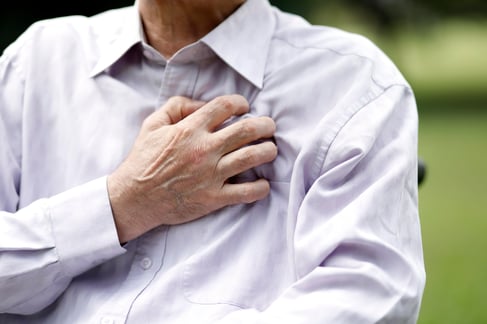Cardio-Oncology: Combining Cancer Care and Heart Health
5 min read

When you get diagnosed with cancer, your oncologist recommends treatments that will fight the disease as effectively as possible. Those treatments invariably come with side effects, most of which show up while you’re receiving care – hair loss, nausea, fatigue. But some cancer treatments have a silent symptom that may not appear for years: heart damage.
While heart damage may sound alarming, it – like many other cancer treatment side effects – can be managed and even prevented with the right care. A newer field of medicine called cardio-oncology has emerged to help people with cancer protect their hearts during and after cancer treatment.
How Cancer Treatments Affect the Heart
The official term for heart muscle damage caused by cancer treatments is cardiotoxicity, or cardiac toxicity. It can occur after receiving:
- Anthracyclines, a type of chemotherapy drug
- Certain types of immunotherapies, such as immune checkpoint inhibitors
- Radiation therapy near the heart
- Some types of targeted therapy, for example, medications to treat HER2+ breast cancers
“If you are going to have heart issues, many will show up within the first year after treatment,” said Dr. Alan Feiner, FACP, a medical hematologist and oncologist at Rocky Mountain Cancer Centers. “But you may have a higher risk of heart problems for 20 years after cancer treatment.”
Researchers are getting a better understanding of how cancer treatments can harm the heart, because different therapies affect the heart in different ways. However, some commonly observed heart problems that arise during and after treatment include:
 Chest pain
Chest pain- Congestive heart failure
- Heart palpitations
- High blood pressure
- Irregular heartbeats (arrhythmia)
- Myocarditis (inflammation of the heart muscle)
Cardiotoxicity also appears to impact certain groups of people more than others. Cancer patients at high risk of treatment-related heart problems include those who:
- Are 60 or older when beginning cancer treatment
- Are obese
- Had heart issues before cancer
- Have high blood pressure (hypertension), high cholesterol (dyslipidemia), or diabetes
- Smoke
What Cardio-oncologists Can Do to Help
Cardio-oncologists are physicians with specialized expertise in oncology (a branch of medicine related to cancer) and cardiology (a branch of medicine related to the heart). They focus on preventing, identifying, monitoring, and treating heart-related side effects of cancer treatments.
Typically, cardio-oncologists follow a four-step process to determine who needs additional care:
- They complete an in-depth health assessment that allows them to rate your cardiac risk from high to low.
- Before treatment begins, they order blood and cardiac tests, if needed, to get a good picture of your current heart health.
- During treatment, they take preventive actions, such as adding a medication to prevent cardiac symptoms or adjusting the dosage of chemotherapy, to lower your risk of cardiotoxicity as much as possible.
- After treatment, they work with you and your other care providers to develop a post-treatment care plan to continue monitoring your health. Your care team may also recommend a cardiac exam with an echocardiogram six to 12 months after completing cancer treatments. If you are at high risk of cardiac toxicity, you may need scheduled heart health exams after the first year too.
Receiving cardio-oncology care when it’s needed may improve long-term cancer survivorship. It may also:
- Decrease the chance of chronic heart problems due to cancer treatment
- Improve the ability to keep working and participating in other activities during and after cancer treatment
- Increase the quality of life both during and after cancer treatment
- Make sticking with cancer treatment easier even if you have side effects
Protecting Your Heart During and After Treatment
A good first step toward protecting your heart is to get any existing heart conditions under control before treatment begins. Tell your oncology team if you have conditions such as high blood pressure, high cholesterol, atrial fibrillation or other forms of arrhythmia, coronary artery disease, and any form of heart valve disease. They can work with your cardiologist to make sure you’re taking the right medications or adjust your doses for maximum effectiveness.
During treatment, it’s easy to forget about protecting your heart because treatments and their side effects can take up so much of your focus. However, some heart-healthy behaviors can alleviate side effects, and adopting them during treatment may make it easier for you to continue them once it’s complete.
- Eat a heart-healthy diet. We can help you maintain proper nutrition during cancer treatment, but once treatment ends, focus on eating a variety of whole, unprocessed foods, including fruits, vegetables, whole grains, and lean sources of protein.
 Stay as active as possible during and after treatment. Physical activity can benefit you, body and mind, at any point during a diagnosis. Before and during treatment, talk with your RMCC team to determine what kind of exercise is safe based on your type and stage of cancer and the treatments you’re receiving. After treatment, regular low- to moderate-intensity exercise can benefit your heart. Exercise has also been tied to longer survival after a diagnosis of breast cancer, prostate cancer, or colon cancer. If you don’t feel up to regular exercise, talk with your RMCC care team. They can help you develop a fitness plan that includes activities you enjoy, which helps you stick with it.
Stay as active as possible during and after treatment. Physical activity can benefit you, body and mind, at any point during a diagnosis. Before and during treatment, talk with your RMCC team to determine what kind of exercise is safe based on your type and stage of cancer and the treatments you’re receiving. After treatment, regular low- to moderate-intensity exercise can benefit your heart. Exercise has also been tied to longer survival after a diagnosis of breast cancer, prostate cancer, or colon cancer. If you don’t feel up to regular exercise, talk with your RMCC care team. They can help you develop a fitness plan that includes activities you enjoy, which helps you stick with it.- Get sufficient sleep. Poor quality sleep can raise your blood pressure and stress levels.
- Manage stress, anxiety, and depression. These are common side effects of a cancer diagnosis, and they can also impact your long-term heart health. Attending support groups can help.
- Take heart medications as prescribed. Your doctor may put you on medication for heart-related conditions, such as high blood pressure or high cholesterol, while receiving cancer treatment to help prevent cardiotoxicity. It’s also essential to keep up with your treatment plans for other health conditions, such as diabetes or kidney disease while receiving cancer treatment.
“Not everyone who goes through treatment experiences heart damage,” Dr. Feiner said. “We just want to ensure that surviving cancer doesn’t cause issues later in life, so we’ll take whatever steps we can to keep your heart healthy.”
Dealing with a cancer diagnosis and treatment while also thinking about your heart health may feel overwhelming. RMCC can help with that too. Reach out to your RMCC supportive care team for guidance and support.